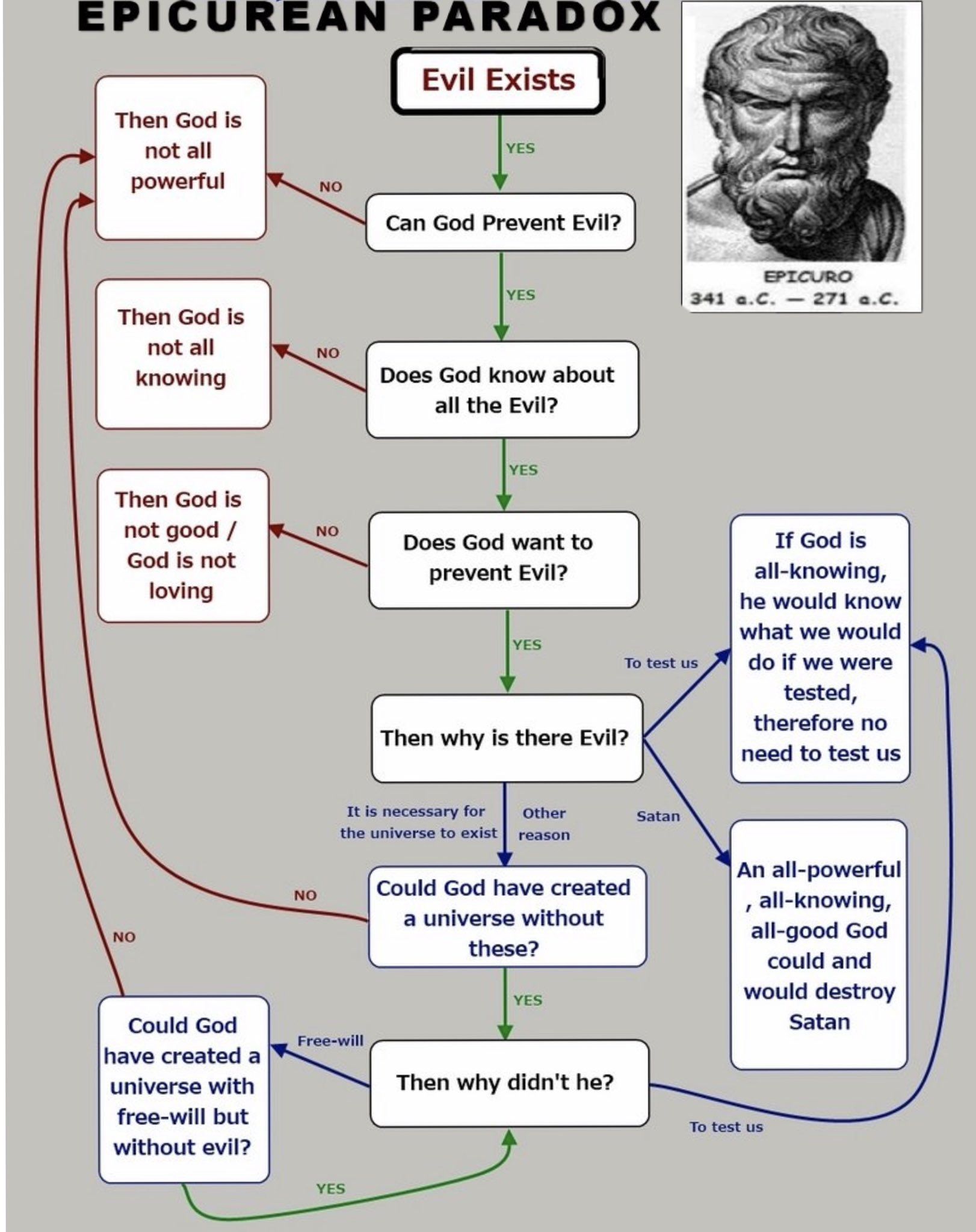this post was submitted on 05 Jul 2025
102 points (100.0% liked)
Atheist
202 readers
127 users here now
Atheists, skeptics, humanists, universalists, and agnostics.
founded 6 days ago
MODERATORS
you are viewing a single comment's thread
view the rest of the comments
view the rest of the comments

There is a somewhat obvious seeming out to this that a religious person could take I think: what if they were to simply look at the start to it and say "Evil doesnt exist, everything we think is evil actually isnt for -insert some reason here that presumably whatever god they follow understands but humans cant/dont-" It wouldnt work for truly dualistic religions since having an evil deity as well as a good one requires evil obviously, and it does make "good" a fair bit less meaningful, but still. Granted, Im not sure if any actually do this.
That'd work if for instance there wasn't the ten commandments and a ton of "this is evil don't do it" in any holy book out there.
It's called [Philosophical/Religious/Metaphisical/Leibnizian] Optimism, was seriously argued by Leibniz, and was the satirical subject of Voltaire's Candide, and definitely persists as a lay Christian belief.
It'd need some serious mental gymnastics to consider, say, raping babies not evil, though.
As for dualistic religions, they fail either the "can god prevent evil" or the "does god want to prevent evil" checks, therefore their gods either aren't omnipotent or are themselves evil.